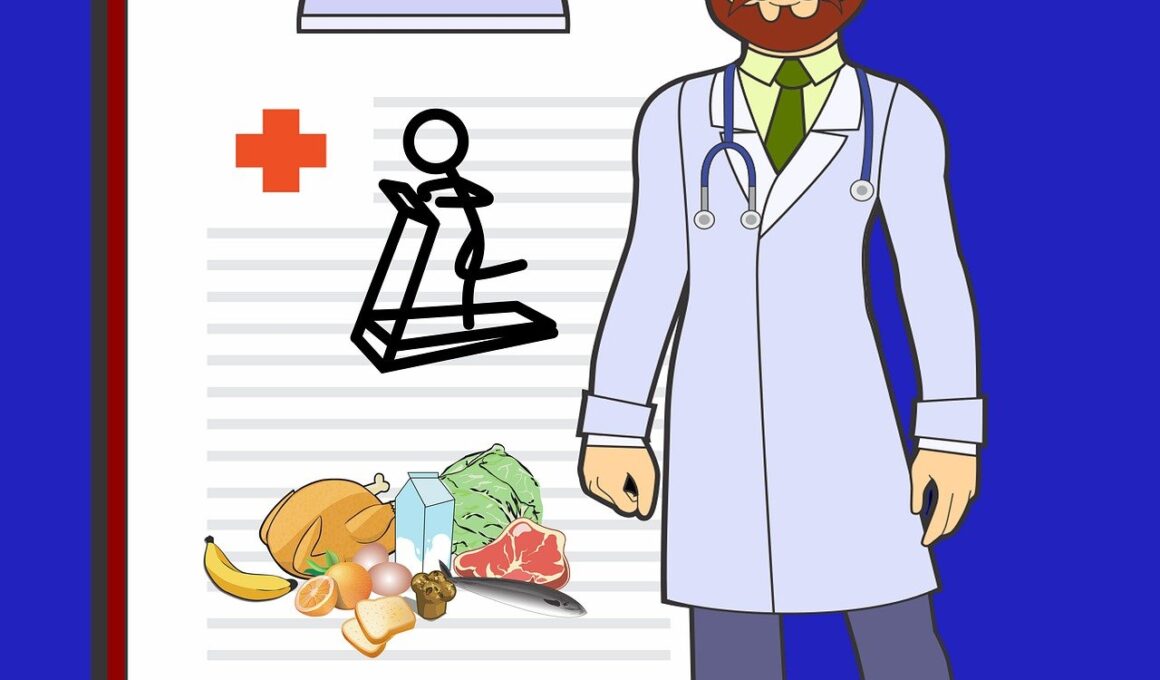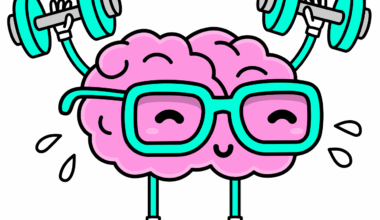Nutrition’s Role in Injury Prevention for Inline Skaters
Inline skating is a demanding sport that can lead to various injuries, making injury prevention essential. Nutrition plays a pivotal role in maintaining performance and reducing injury risk for inline skaters. A balanced diet rich in essential nutrients supports muscle strength, enhances recovery, and provides the energy necessary for skating. Proper hydration is equally crucial, as it helps in regulating body temperature and prevents fatigue. Dehydration can significantly impair performance and increase the likelihood of injuries. Inline skaters need to consume adequate carbohydrates for energy. These should come from whole grains, fruits, and vegetables. Proteins are also vital for muscle repair and recovery, which means including lean meats, fish, or plant-based options is essential. Additionally, healthy fats from sources like avocados, nuts, and oils can promote joint health. Vitamins and minerals, especially calcium and vitamin D, support bone strength and overall health. Supplementing diets with omega-3 fatty acids can also help reduce inflammation. Skaters must prioritize their nutrition to stay injury-free and enhance their performance during practice and competitions.
Key Nutritional Components
While inline skating, the focus should be on consuming foods that enhance strength and endurance while minimizing the risk of injuries. Carbohydrates are particularly crucial as they provide a quick energy source for skaters, especially during intense sessions. Proper carbohydrate intake can lead to improved performance and less fatigue during long skating sessions. Protein intake also is key; it aids in muscle repair and recovery post-activity. Inline skaters should aim for a variety of protein-rich foods, selecting options like chicken, fish, eggs, or plant-based proteins to build and maintain muscle. Healthy fats should not be overlooked, as they play a significant role in hormone production and inflammation reduction. Including sources of healthy fats in a diet helps maintain overall health and reduces the risk of injury. Incorporating fiber-rich foods is also essential to support digestive health. Antioxidant-rich foods help combat oxidative stress from intense physical activity. Skaters should also focus on hydration before, during, and after skating. This supports optimal performance and reduces the likelihood of cramping or injury.
Another critical aspect of nutrition in injury prevention involves planning meals around training sessions. Inline skaters should time their meals and snacks appropriately to fuel their bodies effectively. Consuming a carbohydrate-rich snack an hour before skating provides the necessary energy for performance. Post-skating nutrition is crucial for recovery. It’s important to consume protein and carbohydrates within a thirty-minute window after skating to replenish glycogen stores and support muscle repair. This can be achieved with a smoothie, a protein bar, or whole food options. A well-balanced meal should also follow training, ideally comprising carbohydrates, protein, and healthy fats. Skaters need to focus on meal variety to avoid nutrient deficiencies that could increase injury risk. Planning meals throughout the week enables skaters to prioritize their nutritional needs consistently. Eating a rainbow of fruits and vegetables ensures a diverse intake of vitamins and minerals, contributing to better resilience against injuries. Additionally, keeping track of hydration throughout the day and during training helps maintain performance and endurance, significantly decreasing injury risk.
Supplements for Inline Skaters
Many inline skaters consider supplements to enhance performance and support recovery. While whole foods should be the primary source of nutrients, some supplements may provide additional benefits, especially during intense training periods. Creatine supplementation, for example, can improve strength, while branched-chain amino acids (BCAAs) can aid muscle recovery and reduce soreness. Vitamin D and calcium are supplements often recommended for bone health, particularly for athletes at risk for fractures or injuries. Omega-3 fatty acids are valuable in reducing inflammation, which helps with recovery times after intense or prolonged skating sessions. However, athletes should consult with a healthcare professional before starting any supplement regimen. It’s also important to remember that supplements are not a substitute for a balanced diet. Inline skaters should focus on meeting their nutritional needs through food before considering supplements. Being mindful about the quality of supplements chosen is crucial. Opt for reputable brands that have undergone third-party testing to ensure they contain the ingredients listed on the label and are free from harmful substances.
Another important consideration is the timing of nutrient intake around practice and events. Consuming easily digestible carbohydrates before skating helps prevent gastrointestinal issues while ensuring energy is available. Skaters must also pay attention to their unique body signals and needs. Every athlete responds differently, thus tuning into personal needs for food and fluid can help optimize performance. Maintaining consistent meal timing helps regulate energy levels and prevents drastic shifts in blood sugar, which can impact performance and increase injury risks. Developing a personalized nutrition plan tailored to each skater’s needs can promote long-term success and injury prevention. Keeping a food diary or working with a sports nutritionist might provide valuable insights into dietary habits. Inline skaters should also remember the importance of micronutrients; deficiencies in vitamins and minerals can lead to increased injury risk. Regular consultations with a health professional can help in identifying potential deficiencies. This can lead to adjustments in diet or the incorporation of more nutrient-rich foods.
Rest and Recovery Importance
In addition to nutrition, adequate rest and recovery play crucial roles in injury prevention for inline skaters. Proper recovery strategies, including sleep, contribute to muscle repair and overall health. Skaters should aim for seven to nine hours of quality sleep per night to support their performance and recovery needs. Quality sleep allows the body to repair itself, enhancing muscle recovery and overall physical performance. Overtraining without sufficient recovery can lead to injuries, fatigue, and burnout. Establishing a post-training routine focusing on both nutrition and rest can significantly reduce the risk of injuries. Active recovery days or low-intensity activities can aid in healing while promoting better blood flow to muscles. Incorporating stretching or foam rolling into a routine can improve flexibility and prevent tightness, which may lead to injuries. Inline skaters should also listen to their bodies and recognize when rest is needed. Frequent assessments of performance and physical health can identify signs of fatigue or overtraining. Balancing training with proper nutrition, hydration, and recovery strategies is essential for preventing injuries and performing at one’s best.
Inline skaters who prioritize nutrition demonstrate improvements in not only their physical performance but also their overall wellbeing. This holistic approach to injury prevention can empower athletes to skate safer and longer. Nutrition impacts not just the body but also mental health. A nutrient-rich diet helps improve mood, reduces anxiety levels, and enhances focus during practice and competitions. Proper nutrition ensures skaters maintain high energy levels, which is essential for optimal performance. Skaters should engage in ongoing education about nutrition, exploring new recipes, and meal prep techniques. Swift recovery from injuries may also benefit from good nutrition, facilitating a smoother return to the sport. By adapting their nutrition to their training schedules and ensuring a diverse food intake, skaters can improve resilience. Understanding the role of food in performance can also foster a positive relationship with eating. Inline skating requires dedication, and nutrition should be viewed as a part of the training. Ultimately, when inline skaters develop awareness of how food impacts their performance and health, they can significantly reduce injury risks and enhance their skating experience.
Regular health check-ups can also provide valuable insight into any potential issues arising from improper nutrition or training techniques. Regular evaluations with a sports nutritionist can keep inline skaters informed about the best practices to support their performance while mitigating injury risks. Prioritizing nutrition and adequate recovery consistently results in improved performance on the skates, reduced injuries, and a more enjoyable skating experience. With the right nutrition, inline skaters can achieve their desired goals, whether competing or skating for fun. The commitment to integrating balanced nutrition into their lifestyles allows athletes to thrive in their sport while ensuring their long-term health.


